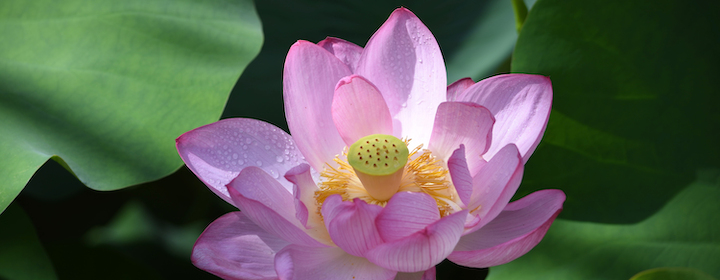I, and I imagine many of us, experience the practice as one of constantly forgetting and remembering. On a retreat several years ago, I once asked my teacher Michele McDonald what she thought the Buddha meant on his deathbed when he said to his monastics, “Strive on with diligence.” She replied that she had asked three sayadaws [1] in Burma the same question, and they all said, “It’s the fulfillment of remembrance” – to come back to the present and to what is true.
In the midst of this devastating global pandemic that has over 3 million reported cases and close to a quarter of a million deaths as I write, I reflect on all the ways I have forgotten and remembered in these last 6 weeks.
What is happening right now is traumatizing, and even more so for those of us who have a history of trauma, oppression, or marginalization. Many of our loved ones have gotten sick, recovered, or died from COVID-19. Many healthcare and essential workers are separated from their families. Many of our communities have been mandated to shelter-in-place, to keep our distance, to wear facemasks in public spaces. Schools, colleges, and universities are closed. Millions are currently unemployed or have lost their businesses. Many families worry about whether they will have a roof over their head or food on the table if this continues indefinitely.
Not to mention the abhorrent greed, hatred, and delusion that flood all our sense doors each day.
All this immense stress manifests in our bodies, hearts, and minds. In the beginning, there were many days when I felt incredibly anxious, fearful, doubtful, angry, frustrated, disconnected, hopeless, and powerless. I started to develop more muscle tension and joint pain. I remember questioning my practice and role as a teacher as I felt myself riding a roller coaster of anxiety and depression, day in and day out. I noticed a huge resistance to teaching online – “Who is going to want to be comforted by a teacher who’s falling apart?” was the narrative playing in my head.
And recently, there have been more days when I have felt calmer, easeful, spacious, grateful, and even happy. Yet circumstances in the world, as the pandemic progresses, continues to get worse on so many levels. The narrative then shifted to “How dare I feel better!”.
I had forgotten. I fell off the wagon. I had multiple arrows piercing my heart. And when I remembered to pause long enough to put my hand on my heart with long deep breaths, I told myself, “This, too, buddy, is ok.” multiple times a day when needed. I was able to free myself from the prison of my own making: I remembered to be compassionate towards myself.
“Grant that I may be given the appropriate difficulties and sufferings on this journey, so that my heart may be truly awakened and that my practice of liberation and universal compassion may be truly fulfilled.”
I have been saying this Tibetan prayer every morning for the last 25 years. I call it my “Bring It” prayer….
“Grant that I may be given the appropriate difficulties and sufferings on this journey, so that my heart may be truly awakened and that my practice of liberation and universal compassion may be truly fulfilled.”
I have been saying this Tibetan prayer every morning for the last 25 years. I call it my “Bring It” prayer. When I remember to trust life’s unfolding, especially when it brings challenges, I have found, over and over again, that it grows my heart and mind beyond what I could ever have imagined. Yet in this trust, what is so needed is a willingness to be with life as best I can in any given moment. An insight I got in therapy one day was that working on myself and having a practice was not going to lead to a happier life; it was going to lead to a fuller one. That was the game-changer.
Many of us are familiar with the acronym R-A-I-N (Recognize, Accept, Investigate), which I learned many years ago from Michele McDonald in one form then from Tara Brach in another. The main difference is in the interpretation of the “N”. Michele refers to it as non-identification while Tara refers to it as nurture, both definitely resonate for me, especially in tandem. I recently listened to a talk of Michele’s that also included the acronym D-R-O-P at the end of R-A-I-N for R-A-I-N-D-R-O-P! Besides being an adorable acronym, it adds a powerful punch to remember what we often want to leave out of our experiences.
The D refers to distraction. When we experience intensity, rather than recognize what is happening, our tendency is distract our attention towards something more pleasant. The R refers to resistance. Rather than accept what is happening, our tendency to resist what is. The O refers to obliviousness or overlooking. Rather than investigating and getting curious about experience, our tendency is to be oblivious of or overlook it. And the P refers to possessiveness. Rather than not identifying with the experience, our tendency is to possess or personalize it. All of this can lead to more suffering.
What I appreciate about Michele’s offering of D-R-O-P is that it gives us an opportunity to practice mindfulness with these very human tendencies to distract, resist, overlook, and possess. When life feels overwhelming, the invitation is to trust our systems to take care of us by putting those defenses in place until we are ready to face the challenge. It allows us to fully embrace our humanity and this life.
When I am able to remember to come back to the present moment and be with experience as it’s arising without judgment and with curiosity, this is the practice of Vipassana – “to see clearly” in Pali. And in seeing clearly, I am able to discern truth from story. Though I may not have control over what is happening, may I remember that I have choice in how I relate to what is happening through skillful action towards alleviating suffering within and outside myself.
As Gloria Steinham once said, “The truth will set you free. But first, it will piss you off.”
I leave you with these phrases of self-compassion, dear ones:
May we have compassion for ourselves and others at this unprecedented time.
May we have the courage to ask for support when we need it.
May we offer support from a resourced body, heart, and mind.
May we trust that we are doing the best we can in each moment.
May we have humility, take responsibility, and make amends when we cause harm.
May we discern with wisdom what is true and act as skillfully as we can.
May we forgive ourselves and each other for our humanity.
May we remember when we forget.
[1] A sayadaw is a senior monk.



